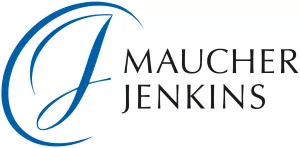Having spent my time in university coding robots and solving seemingly impossible maths questions, I did not expect that I would end up pursuing a career in Intellectual Property (IP) at the end of it. How does a university degree in Electrical and Electronic Engineering translate to a law career?
Studying Electrical and Electronic Engineering exposed me to a variety of interesting theories and technologies that are being used in the world today. Hands on experience constructing and testing projects that once seemed something of the future, such as autonomous robots, helped spur my excitement for future technologies.
When the long-dreaded time came to apply for jobs, I was stuck with what to do. I absolutely enjoyed the theoretical side of my course, and wanted to be exposed to future technologies, but I did not to do want all the complicated maths that was associated with engineering (I never wanted to do a Fourier transform ever again...). That's why I decided to investigate becoming a (trainee) patent attorney.
Patent attorneys have STEM backgrounds, from physics to computer science, life sciences and med-tech to different forms of engineering. We are all nerds here! The role exposes you to a range of different technologies and products that are being developed behind the scenes. It allows you to see the clever features that all these technologies exhibit. Reading into these specifications, you can see how the theories you learnt at university are implemented in the real world!
But what about the law? This is firstly taught to you on the job. You learn different rules and procedures corresponding with the various patent offices (such as the European Patent Office). You then attend Queen Mary University of London to complete the Intellectual Property Law certificate. On achieving the certificate, you can commence training to become a Chartered Patent Attorney.
Patents are all about originality. For example, in your day-to-day work, you will often read letters from Patent Examiners outlining why a certain patent is not allowable. You will go back to the patent specifications (think of them as dissertations) to further understand the features of a technology. Based on your findings, you will then write a letter back to the Examiner to argue why your client's invention is different to the ones cited by the Examiner. You get the chance to talk with clients and inventors, whether it be through Zoom, in the office, or over a lunch!
The role here at Maucher Jenkins is quite flexible, with the ability to work from home and flexible working hours. The ability to hot desk means I can choose to sit alone and crack on with my work, or sit with other people and have a chat. If you consider yourself passionate about your technologies or theories, I would definitely recommend looking down this career path. Don't let the word "attorney" scare you off, this role is very much suited for people with STEM backgrounds!
The content of this article is intended to provide a general guide to the subject matter. Specialist advice should be sought about your specific circumstances.


